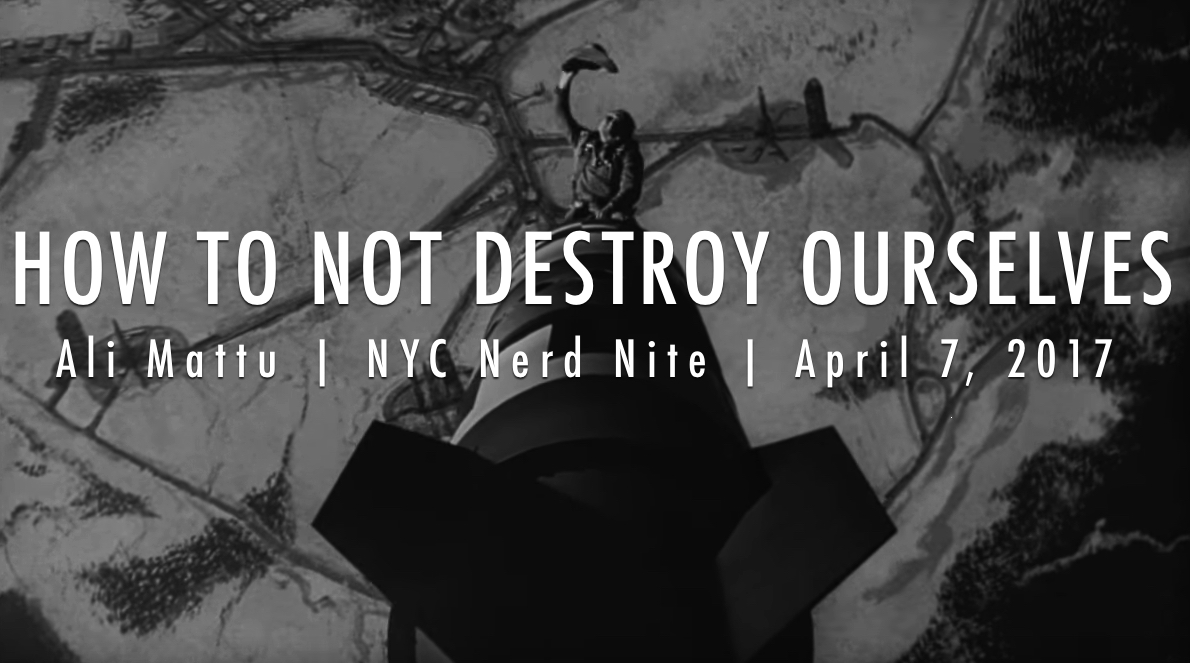This Friday I'll be at New York City's Nerd Nite discussing "How to not destroy ourselves: lessons from science fiction". Here's a sneak description of my talk:
2017 sure does seem like the darkest timeline: our politics are broken, technology is disrupting society, and the planet is warming. But we’ve been here before, at least in the imaginary worlds of science fiction. Join psychologist Dr. Ali Mattu as he investigates how we got into this mess and what science fiction can teach us about getting out of it.



